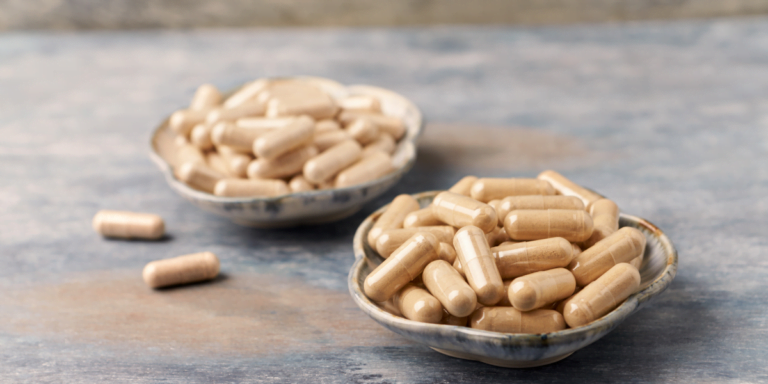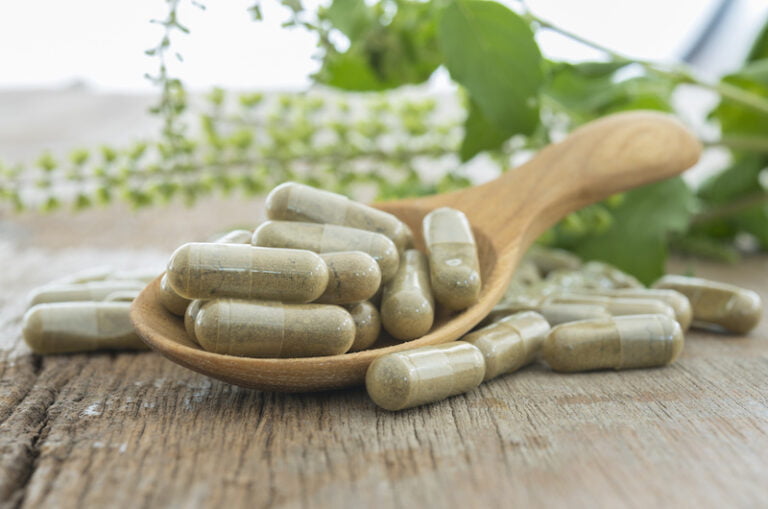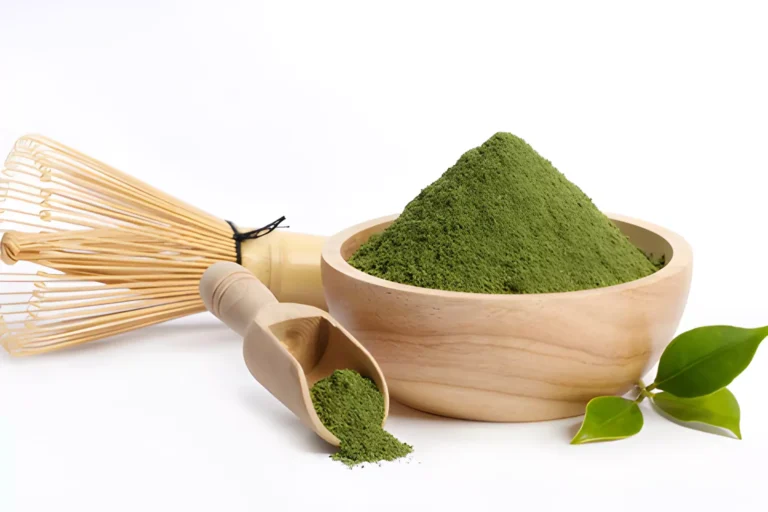10 Best Psyllium Husk Powder Substitutes and Alternatives
Psyllium husk powder is a popular dietary supplement derived from plant seeds called Plantago ovata. It is rich in soluble fiber, which can help improve digestion, lower cholesterol, regulate blood sugar, and promote weight loss. Psyllium husk powder is also used as a natural laxative, as it can absorb water and form a gel-like substance that eases the passage of stools.
However, psyllium husk powder may not be suitable for everyone. Some people may be allergic to it, have difficulty swallowing it, or experience side effects such as gas, bloating, cramps, or nausea.
If you are looking for alternatives to psyllium husk powder, you may wonder what other options are available. Fortunately, many natural and healthy substitutes can provide similar benefits without the drawbacks of psyllium husk powder. Here are 10 of the best psyllium husk powder substitutes and alternatives that you can try.
1. Flaxseed
Flaxseed is one of the most common and versatile substitutes for psyllium husk powder. Flaxseed is also a plant-based source of soluble fiber that can help improve digestion, lower cholesterol, regulate blood sugar, and support weight loss.
Flaxseed can be used in various ways, such as adding it to smoothies, oatmeal, yogurt, salads, soups, or baked goods. You can use whole or ground flaxseed, but ground flaxseed is more effective as it releases more fiber and nutrients. You can also make flaxseed gel by mixing water and ground flaxseed and letting it sit for a few minutes. Flaxseed gel can be used as a thickener or binder in recipes that call for psyllium husk powder.
2. Chia Seeds
Chia seeds are another excellent substitute for psyllium husk powder. Chia seeds are tiny black seeds that come from a plant called Salvia hispanica. They are also rich in soluble fiber that can help improve digestion, lower cholesterol, regulate blood sugar, and promote weight loss.
Chia seeds have the unique property of forming a gel-like substance when mixed with water or other liquids. This makes them ideal for replacing psyllium husk powder in recipes that require thickening or binding agents. You can use chia seeds in smoothies, puddings, jams, sauces, dressings, or baked goods. You can sprinkle them on cereals, salads, yogurt, or fruit.
3. Xanthan Gum
Xanthan gum is a soluble fiber and thickening agent produced by fermenting sugar with a bacteria called Xanthomonas campestris. It is commonly used as a food additive to improve the texture and stability of foods and beverages.
Xanthan gum is beneficial for replacing psyllium husk powder in gluten-free baking, as it can provide structure and elasticity to the dough and prevent it from crumbling or falling apart. You can use xanthan gum in breads, cakes, muffins, cookies, or pancakes. You can also use xanthan gum in soups, sauces, dressings, or gravies to thicken them without affecting flavor.
4. Oat Bran
Oat bran is the outer layer of the oat grain that is removed during milling. It is high in soluble fiber that can help improve digestion, lower cholesterol, regulate blood sugar, and promote weight loss. Oat bran also contains beta-glucan, a fiber with immune-boosting and anti-inflammatory properties.
You can use oat bran in granola, bars, muffins, cookies, or bread. You can cook oat bran with water or milk and eat it as a hot cereal or porridge. You can add fruits, nuts, seeds, honey, or cinnamon to enhance the flavor and nutrition of oat bran.
5. Apple Pectin
Apple pectin is a type of soluble fiber found in the peel and flesh of apples. It is often used as a natural gelling agent to make jams, jellies, or preserves. Apple pectin can be used as a substitute for psyllium husk powder in recipes that require a smooth or creamy texture.
You can use apple pectin in smoothies, puddings, custards, or pies. You can also mix apple pectin with water and drink it as a dietary supplement. The recommended dosage of apple pectin is 1 to 2 teaspoons per day.
6. Guar Gum
Guar gum is a soluble fiber and thickening agent derived from the seeds of a plant called Cyamopsis tetragonoloba. It is commonly used as a food additive to improve the texture and stability of foods and beverages. Guar gum can also help improve digestion, lower cholesterol, regulate blood sugar, and support weight loss by increasing the feeling of fullness.
Guar gum is similar to xanthan gum in its properties and uses, but it is more natural and less processed. You can use guar gum in gluten-free baking, as it can provide structure and elasticity to the dough and prevent it from crumbling or falling apart. You can use guar gum in breads, cakes, muffins, cookies, or pancakes.
7. Tapioca Flour
Tapioca flour is a starch extracted from the root of a plant called cassava. It is gluten-free and grain-free and has a neutral taste and color. You can use tapioca flour in cakes, pies, cookies, puddings, or custards. You can also use tapioca flour in soups, sauces, dressings, or gravies to thicken them without affecting their flavor.
The recommended dosage of tapioca flour is 1/4 to 1/2 cup of flour for baking or 1 to 2 tablespoons per cup of liquid for thickening. However, you should use tapioca flour moderately, as too much can cause a sticky or chewy texture or a high glycemic index.
8. Rice Bran
Rice bran is the outer layer of the rice grain that is removed during milling. It is high in insoluble fiber that can help improve digestion, lower cholesterol, regulate blood sugar, and promote weight loss by increasing the feeling of fullness. Rice bran also contains vitamins, minerals, antioxidants, and phytosterols with various health benefits.
You can use rice bran in granola, bars, muffins, cookies, or bread. You can also cook rice bran with water or milk and eat it as a hot cereal or porridge. You can add fruits, nuts, seeds, honey, or cinnamon to enhance the flavor and nutrition of rice bran.
9. Coconut Flour
Coconut flour is a gluten- and grain-free flour made from dried and ground coconut meat. It is high in fiber, protein, healthy fats, and minerals that can help improve digestion, lower cholesterol, regulate blood sugar, and support weight loss. Coconut flour also has a mild coconut flavor and aroma that can add a tropical twist to your recipes.
Coconut flour can be used as a substitute for psyllium husk powder in recipes that require a light or fluffy texture. You can use coconut flour in cakes, cupcakes, muffins, pancakes, or waffles. You can also use coconut flour in soups, sauces, dressings, or gravies to thicken them without affecting flavor.
10. Acacia Fiber
Acacia fiber is a type of soluble fiber extracted from the sap of a tree called Acacia Senegal. It is often sold as a powder or liquid easily dissolved in water or other beverages. Acacia fiber can help improve digestion, lower cholesterol, regulate blood sugar, and support weight loss by increasing the feeling of fullness.
Acacia fiber can be used as a substitute for psyllium husk powder in recipes that require a clear or smooth texture. You can use acacia fiber in smoothies, juices, teas, coffees, or water. Mix acacia fiber with yogurt, oatmeal, cereal, or fruit.
Conclusion
Psyllium husk powder is a beneficial supplement with many health benefits, but it may not suit everyone. If you are looking for a subtitute, you can try any of these ten natural and healthy substitutes that can offer similar benefits without the drawbacks of psyllium husk powder. However, you should always consult your doctor before taking any supplement, especially if you have any medical conditions or are taking any medications.




